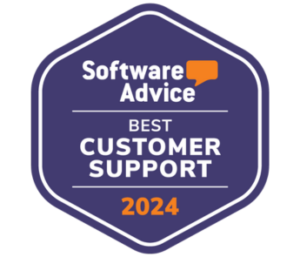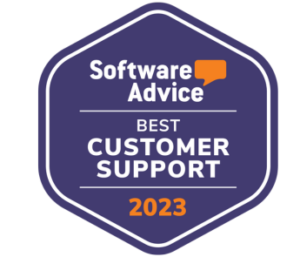10 Advantages of Cloud ERP for Growing Manufacturers and Distributors
If You Think ERP Is Just About Data, Think Again
In our last article, we explored what a cloud-based ERP is and how it works.
Now, let’s talk about why it matters — especially for manufacturers and distributors who are growing fast and trying to stay ahead of complexity.
For many businesses, success brings new challenges: too many spreadsheets, disconnected systems, and limited visibility. Operations start to feel like a game of catch-up. That’s when modern, cloud-based ERP solutions like Kechie become a game-changer.
Below are ten real-world advantages that explain why cloud ERP isn’t just a technology upgrade — it’s a growth strategy.
1. Real-Time Visibility Across Your Entire Business
When your systems talk to each other, everything changes.
A cloud ERP like Kechie gives you one source of truth for your data — from production to finance to inventory.
Instead of waiting for weekly reports, you can see what’s happening right now. Inventory levels, order status, production bottlenecks, and customer trends update in real time.
For high-growth companies, this visibility helps leaders spot inefficiencies, pivot quickly, and make smarter, faster decisions.
2. Flexibility That Grows With You
Growth is exciting — until your systems can’t keep up.
Cloud ERP scales effortlessly. Need to add a new warehouse, product line, or user group? It takes minutes, not months.
With Kechie, manufacturers and distributors can expand without worrying about installing new servers or disrupting operations. You start with the modules you need and add more as you grow — finance, inventory, CRM, purchasing, or production.
That flexibility keeps your business nimble, even as complexity increases.
3. Lower Total Cost of Ownership
Traditional ERP systems often require big upfront costs: servers, hardware, dedicated IT staff, and long implementation cycles.
Cloud ERP flips that model. With Kechie, there’s no heavy infrastructure to maintain. The system is web-based and subscription-driven, so you only pay for what you use.
Updates, backups, and security are handled automatically — freeing your team to focus on running the business, not running the software.
4. Faster Implementation and Easier Upgrades
On-premise ERP implementations can take months — sometimes even a year. Cloud ERP solutions are far quicker to deploy because there’s no hardware setup or manual configuration.
Kechie’s cloud deployment model means you can be up and running in a fraction of the time.
And when it’s time for upgrades, they happen behind the scenes. No downtime. No disruptions. Just the newest features, automatically applied.
5. Enhanced Collaboration Across Teams
For many companies, data lives in silos — accounting has one version, operations another, sales a third. That disconnect leads to delays, errors, and frustration.
Cloud ERP solves this by connecting everyone on the same platform.
Your sales team can check inventory before quoting a customer. Your production team can see new orders instantly. Finance can reconcile transactions in real time.
Kechie takes this a step further with role-based dashboards, so each department sees what matters most to them — without being overwhelmed by irrelevant data.
6. Improved Inventory Control and Supply Chain Management
Inventory is often where profits leak unnoticed — too much stock, slow turnover, or misplaced items.
Cloud ERP systems like Kechie give you complete visibility and control. You can track inventory across multiple warehouses, automate reordering, and even use FIFO (First-In, First-Out) tracking for perishable or high-turnover items.
For distributors, that means fewer stockouts and happier customers. For manufacturers, it means smarter production planning and lower carrying costs.
7. Seamless Integration With Other Business Tools
Modern businesses rely on multiple platforms — accounting software, eCommerce, CRMs, logistics systems. The problem is, those tools rarely talk to each other.
Kechie is built to integrate seamlessly with platforms like QuickBooks Online, Shopify, and other cloud applications.
That means no double data entry, fewer errors, and a single connected workflow from order to fulfillment.
8. Security and Data Protection You Can Trust
Some businesses hesitate to move to the cloud because they worry about security. The reality?
Top-tier cloud ERP systems are often more secure than on-premise ones.
Kechie uses enterprise-grade encryption, regular security audits, and redundant data backups in secure data centers.
Unlike a local server, which can fail or be breached, cloud environments are monitored continuously and updated automatically.
In today’s world of cyber threats and data regulations, that peace of mind is invaluable.
9. Continuous Innovation and Future-Ready Features
The beauty of cloud software is that it never stops evolving.
Kechie continuously updates its platform, rolling out new features that leverage AI, automation, and analytics — without requiring any manual installations or upgrades from your side.
That means your ERP grows smarter over time.
As manufacturing and distribution trends shift — from IoT connectivity to predictive analytics — your business stays ahead, not behind.
10. Better Decision-Making Through Real-Time Insights
At the end of the day, cloud ERP is about making better decisions faster.
Instead of relying on static reports, you get live dashboards that show what’s really happening across your business.
Kechie’s analytics tools let you track KPIs like inventory turnover, order fulfillment rates, and gross margin — all in real time.
That level of insight empowers leaders to act proactively, not reactively. You can identify inefficiencies, fine-tune operations, and seize opportunities before competitors do.
The Ripple Effect: How These Advantages Multiply
Each of these ten advantages is powerful on its own — but together, they transform how your business operates.
- Real-time data fuels faster, more confident decisions.
- Automation reduces manual work and human error.
- Integration breaks down silos between teams.
- Scalability ensures you’re never stuck with yesterday’s system.
In other words, cloud ERP gives growing companies the kind of agility that used to be reserved for enterprise giants.
When your systems are connected, your team aligned, and your data reliable, growth stops feeling chaotic — and starts feeling controlled.
Why Kechie Stands Out
Plenty of ERP solutions promise cloud flexibility. Few are built from the ground up with distributors and manufacturers in mind.
Kechie ERP is designed specifically for the challenges you face every day:
- Managing inventory across multiple warehouses
- Handling high order volumes
- Coordinating production and purchasing efficiently
- Keeping costs down while scaling up
Its modular design means you can start small — and grow without ever outgrowing your system.
And because it’s truly cloud-native, Kechie delivers updates, integrations, and innovations continuously — ensuring your business is always equipped with the best tools available.
The Bottom Line
For fast-growing manufacturers and distributors, cloud ERP isn’t just a nice-to-have — it’s the foundation of sustainable growth.
It connects every corner of your operation, cuts down on wasted time and resources, and gives you the data clarity you need to make confident moves.
Kechie brings all these advantages together in one flexible, scalable, and secure platform built for the realities of modern business.
If you’re ready to move beyond spreadsheets and fragmented systems, now’s the time to explore how cloud ERP can help you operate smarter, faster, and stronger.
Contact us today to learn more about how Kechie ERP can transform your inventory management practices!
In This Article
10 real-world reasons cloud ERP is a growth strategy
1. Real-Time Visibility Across Your Entire Business
2. Flexibility That Grows With You
3. Lower Total Cost of Ownership
4. Faster Implementation and Easier Upgrades
5. Enhanced Collaboration Across Teams
6. Improved Inventory Control and Supply Chain Management
7. Seamless Integration With Other Business Tools
8. Security and Data Protection You Can Trust
9. Continuous Innovation and Future-Ready Features
10. Better Decision-Making Through Real-Time Insights
-The Ripple Effect: How These Advantages Multiply
-Why Kechie Stands Out
-The Bottom Line











